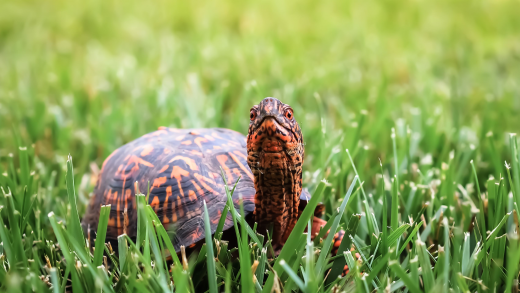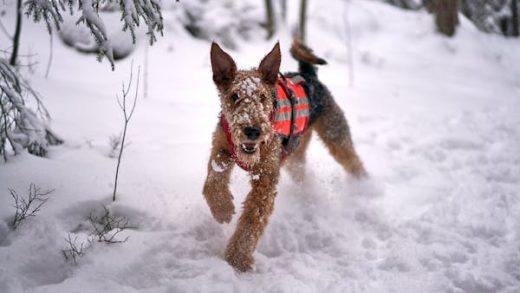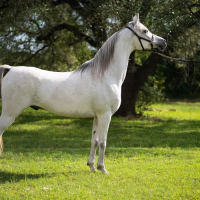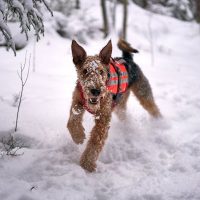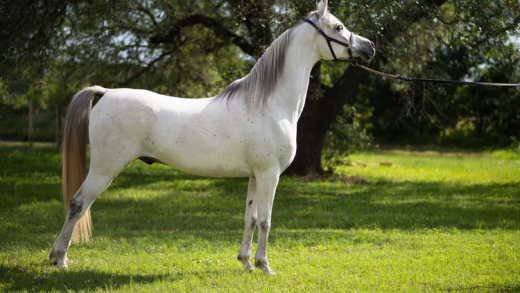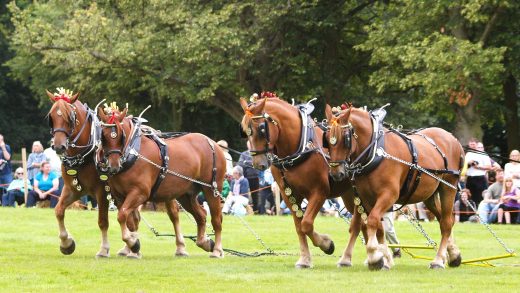Table of Contents
Quick Overview:
| OFFICIAL NAME | Bernedoodle |
| BREED PARENTS | Bernese Mountain dog + Poodle |
| ORIGIN | Canada |
| GROUP | Designer |
| AVERAGE HEIGHT | 23 – 29 inches |
| AVERAGE WEIGHT | 20 – 50 kilograms / 45 – 110 Pounds |
| COAT TYPE | Wavy /Curly /straight |
| COAT COLOR | Black, black and brown, black and white, tri-color (black, white and brown) |
| AVERAGE LIFESPAN | 12 to 18 years |
| HYPOALLERGENIC | Yes |
| TRAINING DIFFICULTY | Easy |
| ENERGY LEVEL | Active |
| EXERCISE NEEDS | Moderate |
| DROOL AMOUNT | Low |
| TENDENCY TO BARK | Low (only when required) |
| SHEDDING AMOUNT | Low |
| KEY PERSONALITY TRAITS | Intelligent, Playful, Gentle, Out-going, Fun loving |
| POSSIBLE HEALTH ISSUES | Hip and elbow dysplasia, Some eye conditions, Allergies, Hot spots |
| SUITABLE FOR | Families, Active pet owners, First time as well as well experienced owners |
| PRICE | 500$ – 5000$ |
Bernedoodle: Introduction
Bernedoodles are intelligent, gentle and out-going dogs originating from Canada. They are a cross breed between the Bernese Mountain Dog and the Poodle. Due to this lineage, their size is difficult to say. But on average, standard Bernedoodles are 23 – 29 inches weighing roughly around 80-110 pounds. Being a mixed breed, they are recognized neither by American Kennel Club nor Canadian Kennel Club. But some groups like the Designer Dogs Kennel Club, the International Designer Canine Registry, the Designer Breed Registry, and the American Canine Hybrid Club recognize them.
Although not relatively popular as other breeds, some of them have gotten their fair share of moments in the spotlight. Some of them also have a good following on social media. Let us learn more about them below.
History and Origin
Originated or “Invented” in Canada by a Canadian breeder Sherry Rupke, the Bernese Mountain Dog and the Poodle were bred in 2003 with the suggestion of a client of hers so as to attain “the traits people love about the Bernese with better odds of good health and a long life spent together.” She “loved everything about the gorgeous and sweet-natured Bernese, except for the short-lived breed’s genetic propensity for cancer. Plus, it sheds. And it can be a little stubborn.” Henceforth, she bred them to create Bernedoodle and breed out some of the sickly traits of the Bernese.
Physical Characteristics
Bernedoodles are best of both worlds of the Bernese Mountain Dog and the Poodle. Henceforth, standard Bernedoodles are usually big in size ranging from 23-29 inches and weighing from 80-110 pounds. They usually have a wavy or curly coat type but it can also be straight. Their color can be solid color (black, white), bi-color(black and white, black and brown) or tri-color(black, brown and white).
Tri color variants are more commonly found while solid color variants being the rarer ones. They are known for their low shedding and low-allergen coat making them hypoallergenic dogs.
Temperament and Personality
Bernedoodles are Intelligent and gentle. They are also active dogs which makes them playful and out-going. Due to their intelligence, they are easy to train. They also exhibit friendly and loyal traits which makes them excellent first-time companion for new pet owners. They are usually quiet dogs and only bark when required to.
They love staying at home as much as they love going outside. Due to their traits, they make excellent hiking companions. They are also good with children and other dogs. They can usually fit into any family as long as they are well exercised. Although they are very friendly towards their family, they may be sensitive, apprehensive and skittish around new people and strangers. But this can be avoided by socializing them to help with being comfortable around new people. They can also be excellent therapy dogs due to their intelligence and friendliness.
Exercise and Activity needs
Bernedoodles are best of both worlds as they are happy with going outdoors for various activities like hiking, trailing etc. but are also happy staying with their owners. They however don’t like being alone for long as they may develop separation anxiety and nervous habits including whining. They do not understand the concept of personal space.
Although they are the best of both worlds, they are considered active dogs. They require a moderate amount of exercising. They require regular exercising
(at least 60 minutes daily) to keep them physically and mentally simulated and happy. The exercise could include anything small like short playing times or short walks but can also be hiking, trailing, swimming etc.
Fun fact: They are excellent swimmers.
Grooming and Care
In accordance with other breeds, Bernedoodles generally have a low maintenance coat. They have a low shedding coat but still require frequent brushing in order to prevent matting. They will only need professional grooming once every few months but grooming and haircuts can be given as per the need and owner. This can both be a good and bad thing as they will be easier to maintain but still need daily or frequent brushing. Caring for them will be easier as long as they get the needed physical and mental stimulation from physical activities and constant love and attention from their owners.
Some tips for Bernedoodle caring could be:
- Brush your pet frequently (at least three times a week) to prevent matting and keep the coat shiny.
- Bathe them once every few months to prevent stripping natural oils that keep the coat and skin moisturized.
- Professional grooming should be done once every few months.
- Dental health should be introduced early and brushing teeth should be done at least 3 times a week.
Health and Common Concerns
Bernedoodles can inherit diseases from their parents. The most common diseases seen in them include Hip and elbow dysplasia, Some eye conditions, Allergies and Hot spots. But if taken care of properly then they are generally healthy dogs who live up to 18 years. They are susceptible to mental disease like separation anxiety if left alone for long frequently. Some ways to keep a Bernedoodle healthy and eliminate possibility of disease are:
- Proper vaccinations should be given in time and regular checkups should be done.
- Food approved by the Association of American Feed Control Officials (AAFCO) should be fed to ensure balanced diets.
- Proper feeding habits should be developed as improper habits like fast eating or eating a big meal for a day could lead to Gastric Dilatation-Volvulus (GDV).
- Timely meals and proper diet should be maintained as over eating may cause obesity leading to Hip and elbow dysplasia.
- Dental health should be introduced in puppy days. Habits should be built for teeth brushing at least three times a week and teeth brushing should be done with dog specific brushes and toothpastes.
- Proper exercising should be given and they should have at least 60 minutes of exercising every day.
- They should not be left alone for long frequently as they can develop separation anxiety.
- If any change in physical or behavioral aspect is seen, seek professional help
- Proper sanitation and environments should be maintained
- Timely brushing and grooming should be done to prevent matting and hot spots.
Seeking professional help for maintaining your pet’s health should be a must for any owner.
Training and Socialization
Bernedoodles are highly intelligent so they will be able to learn quickly. This can also be both good and bad as they can also pick up bad habits quickly. Hence proper training should be ensured from a young age.
Bernedoodles should have basic training like potty training, leash training, socializing etc. in their early puppy days. Although Bernedoodles are quiets dogs, some are prone to barking so proper barking training should be given early. Training should be done with positive reinforcement methods.
Bernedoodles are also very social dogs. If they are exposed to socialization since early puppy days, they can turn out very friendly towards other dogs and even strangers and new people. Timely socialization is required to keep them mentally stimulated and happy.
Some tips and techniques for Bernedoodle training could be:
- Give your pet a proper potty trainings.
- They love walking so giving them leash training for outdoor walks should be a must in puppy days.
- Proper barking training should be given to make them less prone to barking and make them more patient.
- Proper feeding training should be given to ensure good food habits.
- Dental training like brushing should be given in early days.
Conclusion
In conclusion, Bernedoodles are intelligent, friendly and gentle dogs that are suitable for any family. They are easy to train and can be left with children without any worries. Although they need to be brushed frequently and exercised daily, all the efforts would be worth it. If taken proper care of, they can live a healthy and happy life with their owners.
Bernedoodle is recommended to owners who can fulfill their physical and emotional needs properly. They are mostly suitable for out goers like hikers. They can also be recommended as therapy dogs. New owners can also learn a lot from having them as pets.
A Bernedoodle dog named Benji is also famous on Instagram as @lilmanlife with over 359K followers.
People also read about: Puggle

